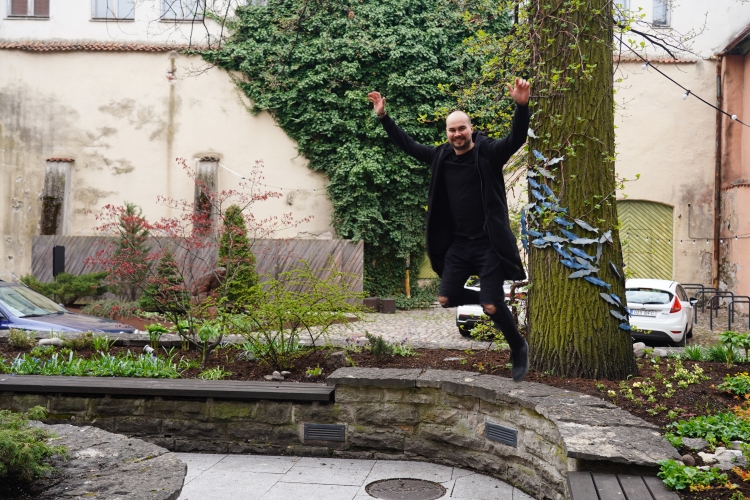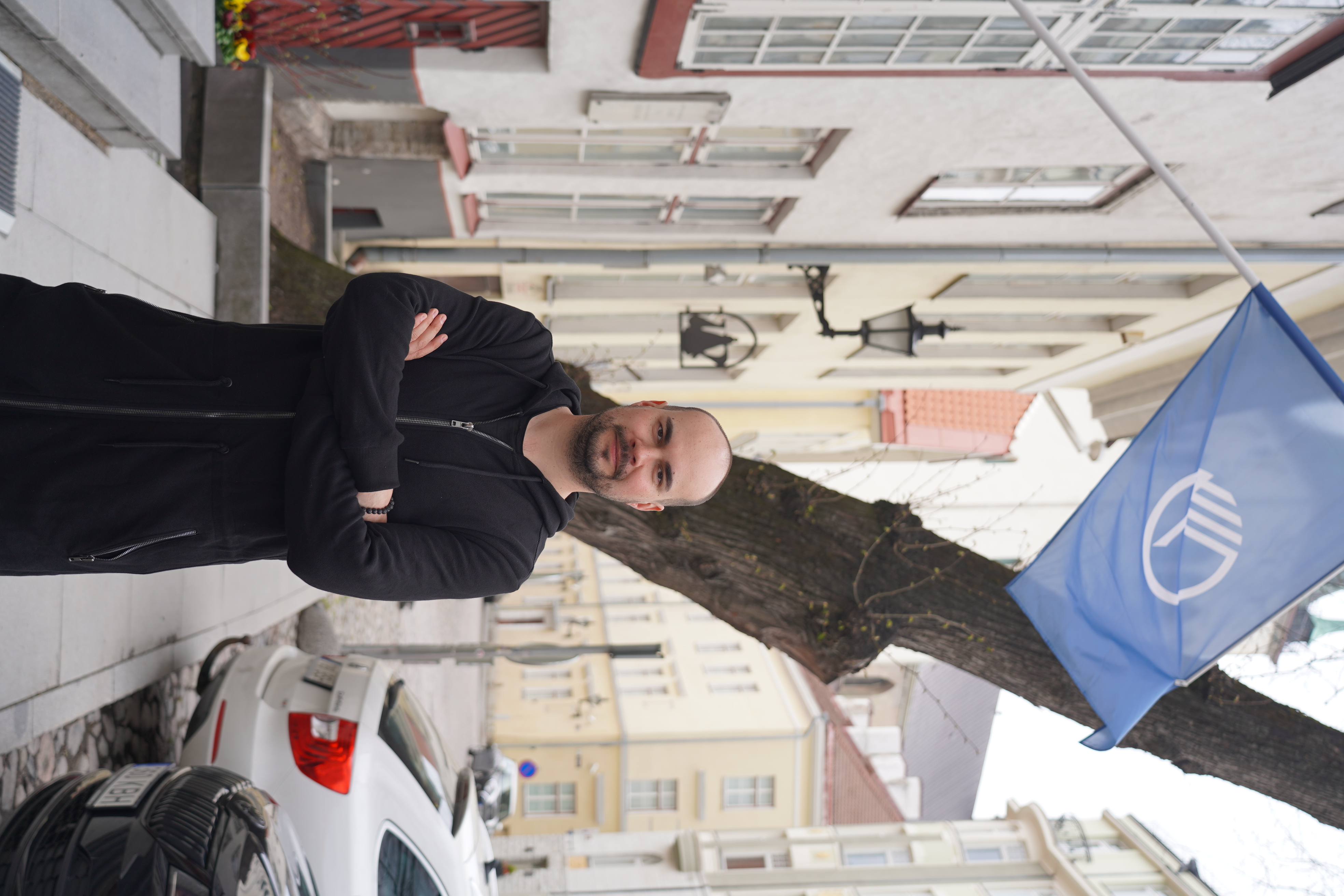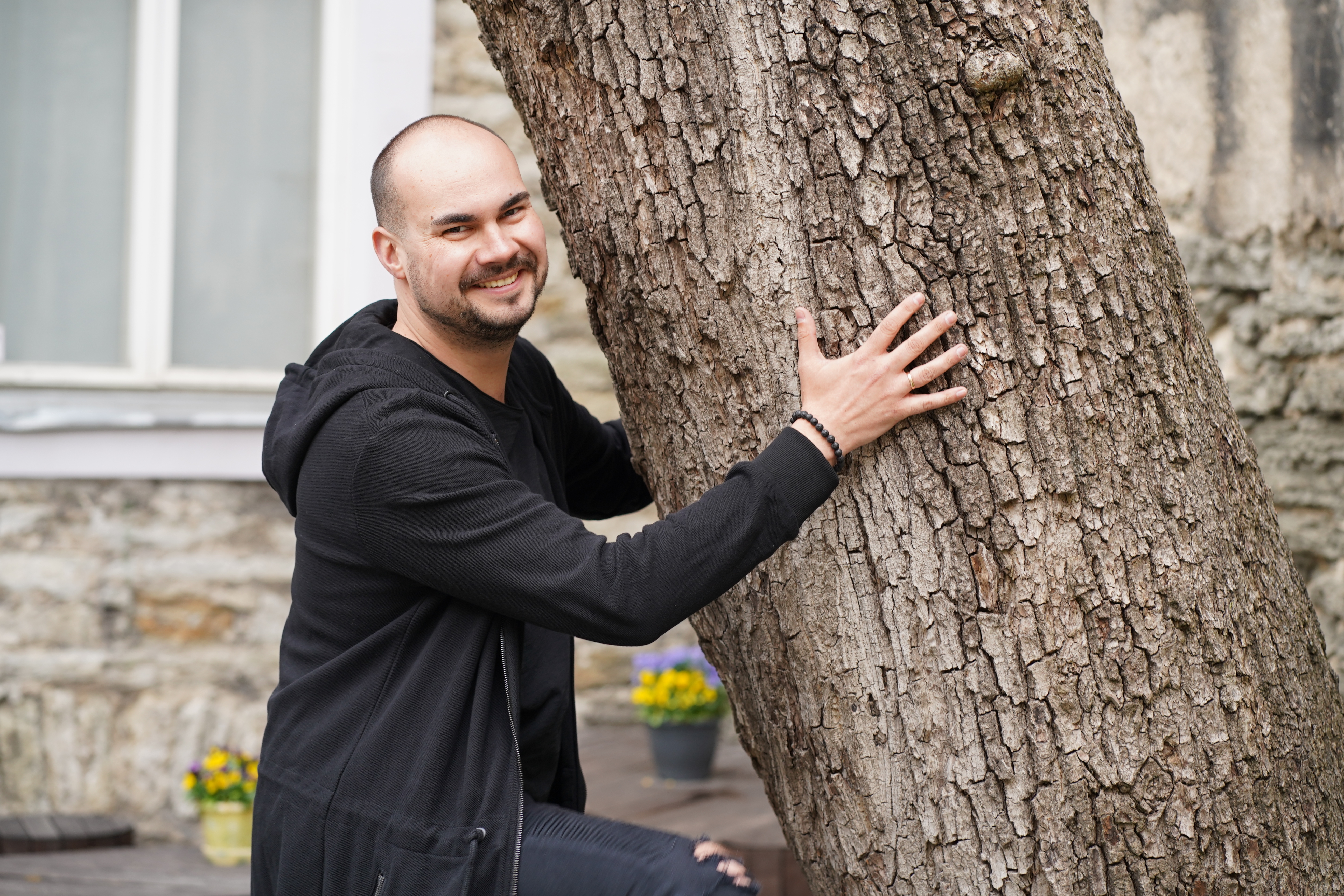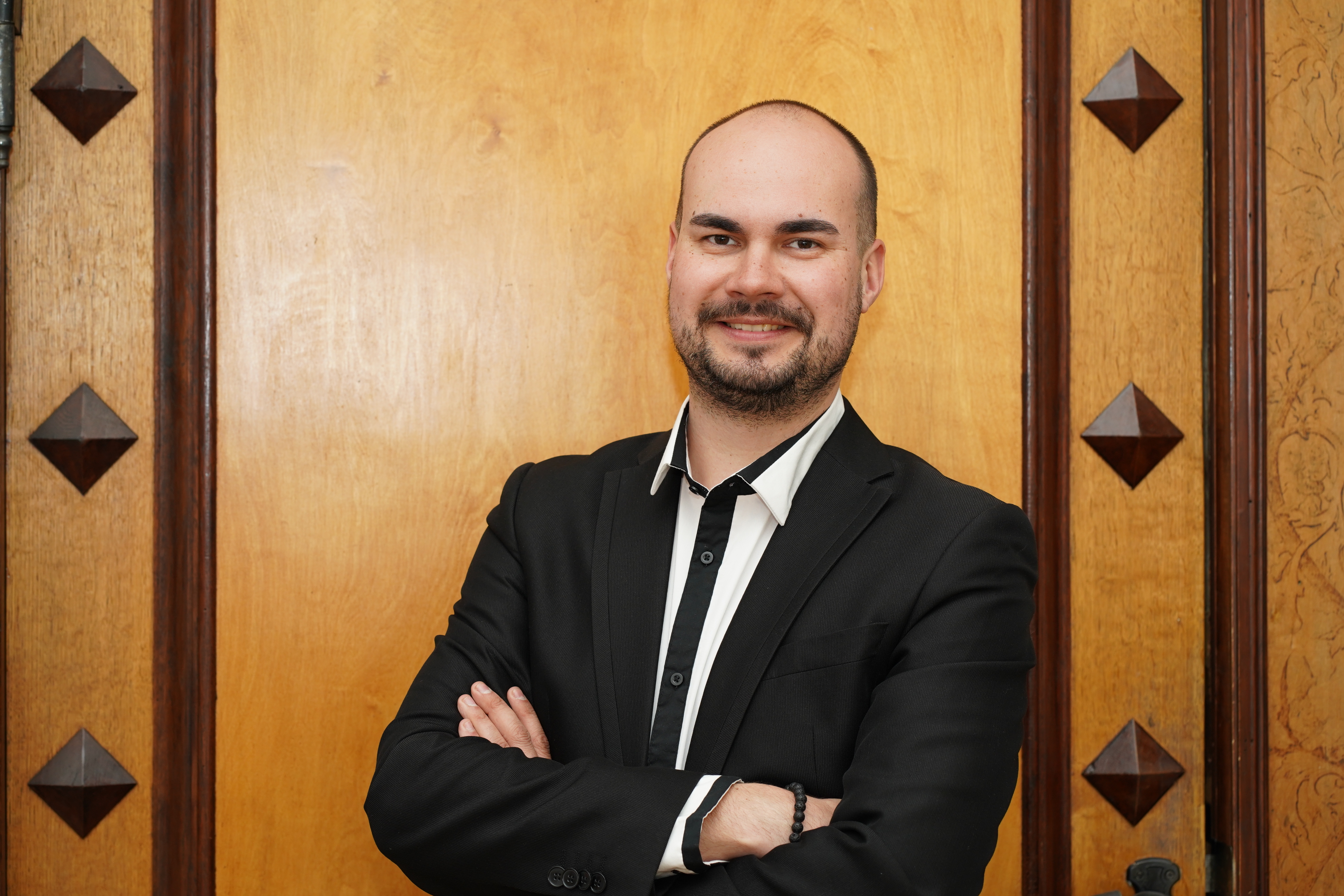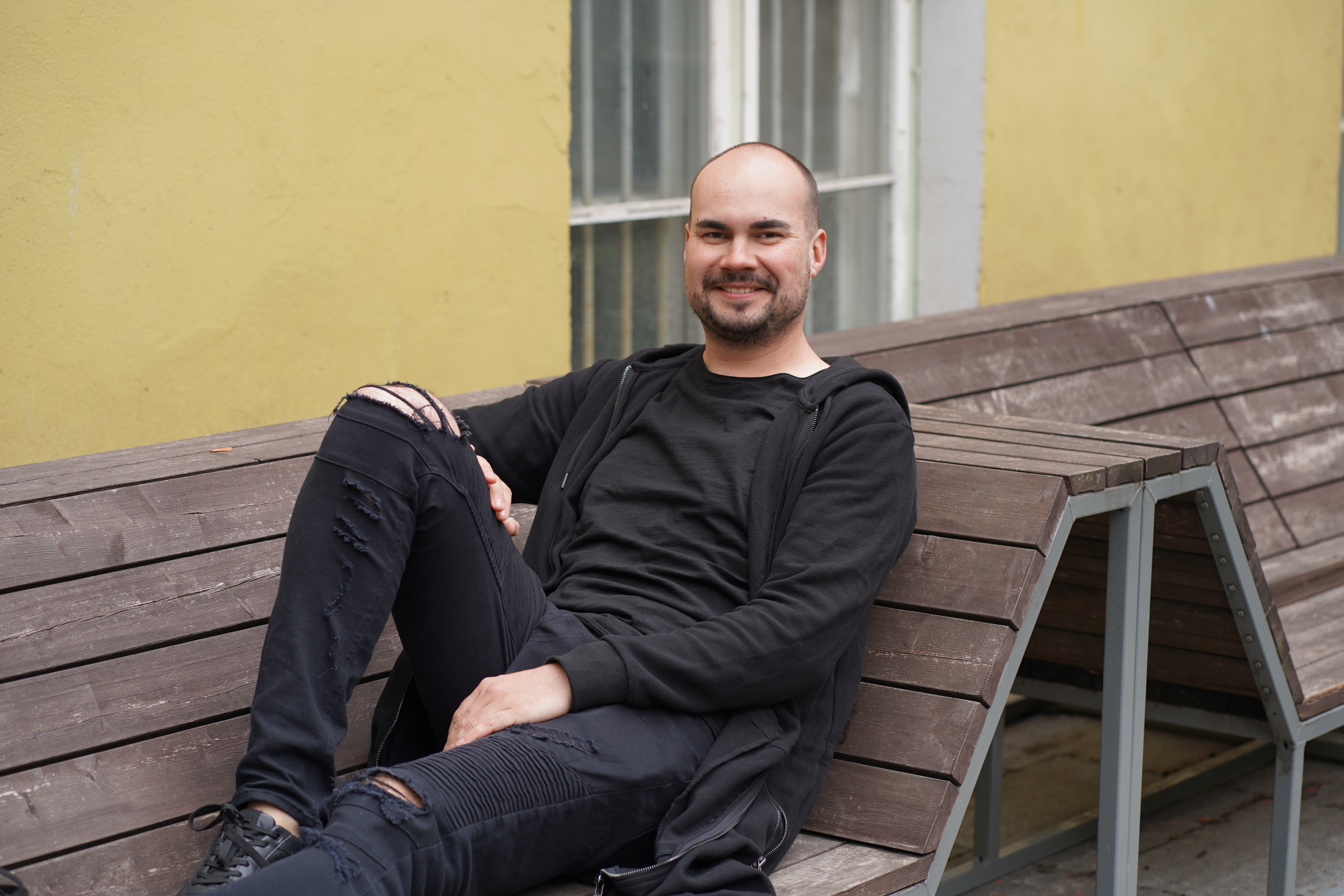Fresh out of secondary school in Narva, Jevgeni enrolled in the Culture Management programme at the Viljandi Culture Academy of the University of Tartu. He says the atmosphere of the pretty and creative town, where he truly integrated with the locals, helped him forge an enormous number of ties and broaden his horizons. Immediately upon graduating he took up the post of project manager for events at Narva Museum before serving as the chief specialist in the field of culture for Narva-Jõesuu City Government, where he thought up a number of new events that are still going today – among them the Candlelight Evenings and the Lamprey Festival.
In late 2015 the Nordic Council of Ministers (NCM) decided to open a ‘pop-up’ office in Narva. At the time, Jevgeni had just come to the end of his contract with Narva-Jõesuu City Government and was on the lookout for something new. “Since I’m from Narva and had experience in the fields of culture, tourism and marketing, I was the lucky one chosen from dozens of candidates to head up the Narva office,” he says. “Narva has a lot in common with the Nordic countries, so I thought joining the NCM would be an interesting and exciting challenge. And I was right!”
Setting the Nordics as an example from the get-go
Jevgeni’s earliest impressions of the Nordics were formed on trips he was taken on as a child. “I’ve always associated the countries with stunning, unsullied natural environments and high standards of living,” he says. “One thing that always ate at me a bit was that life there was so much better than it was here in Estonia. But time and practice have shown that even living here you can go about things in a Nordic way.”
To date, Jevgeni has struggled to square the circle that is, to him, the Nordic way of thinking: polite and attentive, but at times coldly matter-of-fact. He thinks people from the region rarely express their true feelings. At the same time, he likes the approach they take to work and to the overall order of things. “There are rules and regulations everywhere, for everything, and everyone follows them,” he says. “The way they go about things, the processes themselves, are often given their own names. The one I like most is the Swedish fika: the breaks they take at work to sit around, have a cup of coffee and eat a cinnamon bun while they set the world to rights. It’s an integral part of their lives.”
In Jevgeni’s view, the best way of getting to grips with the life and culture of other nations is through music, books and films. “I guess you could say I do the sort of job that allows me to combine my work with things I love,” he smiles. “As part of our projects we screen a lot of new films, mostly in Narva, but all around Estonia, and prior to the pandemic we were bringing some interesting people in from the Nordic countries. There are a lot of great authors as well whose works have been translated into Russian and Estonian. So apart from anyone else, I myself learn a lot about Nordic culture through events and discussions and film screenings, and that’s something I’ve come to cherish.”
Jevgeni likes books that offer real-world value. “What can I say, I’m a practical person!” he laughs. “The most recent book I read was Norwegian explorer and author Erling Kagge’s Walking: One Step at a Time, which is all about the benefits and importance of going for walks,” he reveals. “And to parents I can recommend the amazing books written by Danish psychotherapist Jesper Juul, who’s been working in the field of family psychology for more than 35 years.”
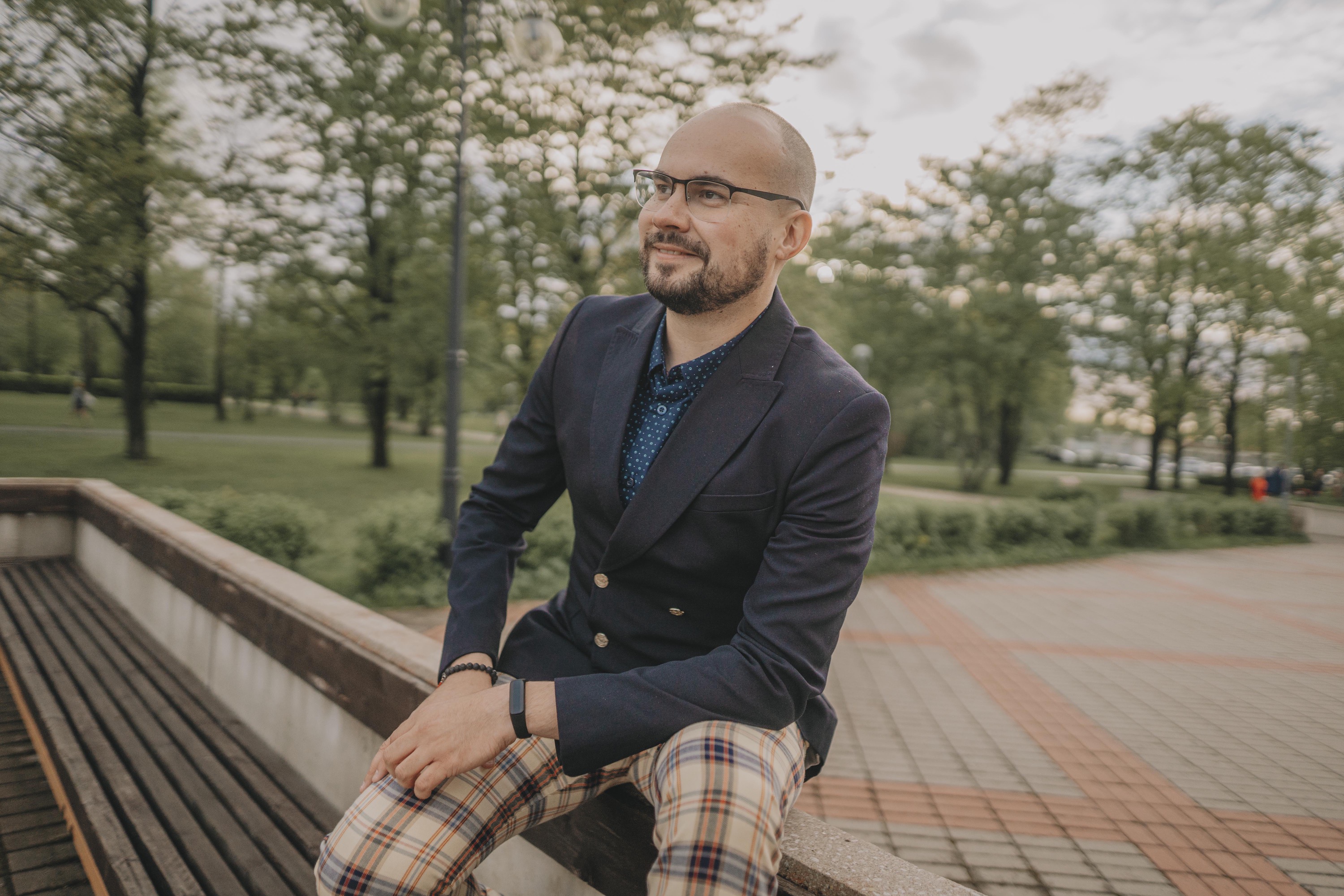
Photo: Artur Ivlijev
Nothing is clear, but everything is fascinating
The first thing Jevgeni had to learn upon joining the NCM was his job title, which officially is Programme Coordinator for the Narva office of the Nordic Council of Ministers’ Office in Estonia. “Nothing’s clear, but everything’s fascinating!” Jevgeni smiles. “That was true of the job title as much as it was about the NCM itself. It took me a couple of months to figure out what it was all about and why it had even set up shop in Estonia.”
The question put to Jevgeni most often after the opening of the Narva office was, he recalls, whether they would be sponsoring people to go and work in the Nordic countries. Although the answer was no, he began planning the work of the office in light of the question so as to explain the aims and activities of the NCM to the people of the region.
During his first year running the office, Jevgeni started familiarising himself with each of the Nordic countries. “It was an interesting and really useful experience, because they constantly come out on top in all sorts of rankings, whether it’s quality of life, happiness, the green economy or social equality,” he says. “With every project we launch and every event we organise we try to pass on the values that have developed and taken root in the Nordic region over the centuries.”
Jevgeni describes Estonia as a relatively young country which has an unparalleled opportunity to work with its neighbours and benefit from their wealth of experience. “I don’t like giving others advice on how they should live their lives,” he says. “That’s for them to decide. I just want to show them that they can boost their quality of life simply by adapting how they go about things a bit. Like, ride your bike instead of taking the car the next time you have to pop somewhere, or start sorting your household waste, or plant some trees. Old furniture can be restored, or replaced with hand-crafted pieces. Dads can take parental leave and spend more time with their kids. There’s lots of little things you can do, but they can make a big difference to your quality of life.”
The Nordic countries and Narva
During his first year with the NCM, Jevgeni launched an ambitious project in Narva: Nordic Week. It remains the biggest annual project he runs. Supported by the Nordic embassies in Estonia, the event gives local residents a taste of their northern neighbours’ culture and way of life in a series of concerts, film screenings, exhibitions and meet-and-greets with authors and leading public figures from the region.
Jevgeni sees multiple advantages in Nordic Week. “It’s the sort of project that not only broadens people’s horizons but also presents them with the opportunity to learn about the Nordic way of life without having to go there themselves,” he says. “In the time since the Narva office opened we’ve organised a whole host of events, held hundreds of meetings at every level and taken inspiration from the successful experience of the Nordic countries in areas like culture and the sorting of waste, all for the good of the city and the region as a whole.”
Currently one of the most important projects in Narva which has Nordic links is the personal exhibition of Norwegian artist Helene Knoop (a descendant of Kreenholm factory founder Ludwig Knoop), preparations for which are underway. “There are loads of things like that which link Narva to the Nordic countries, and it’s so interesting to start tying those threads together,” Jevgeni says. “It’s crucial in fostering and shoring up relationships and, as cheesy as it sounds, for building a brighter future for our region.”
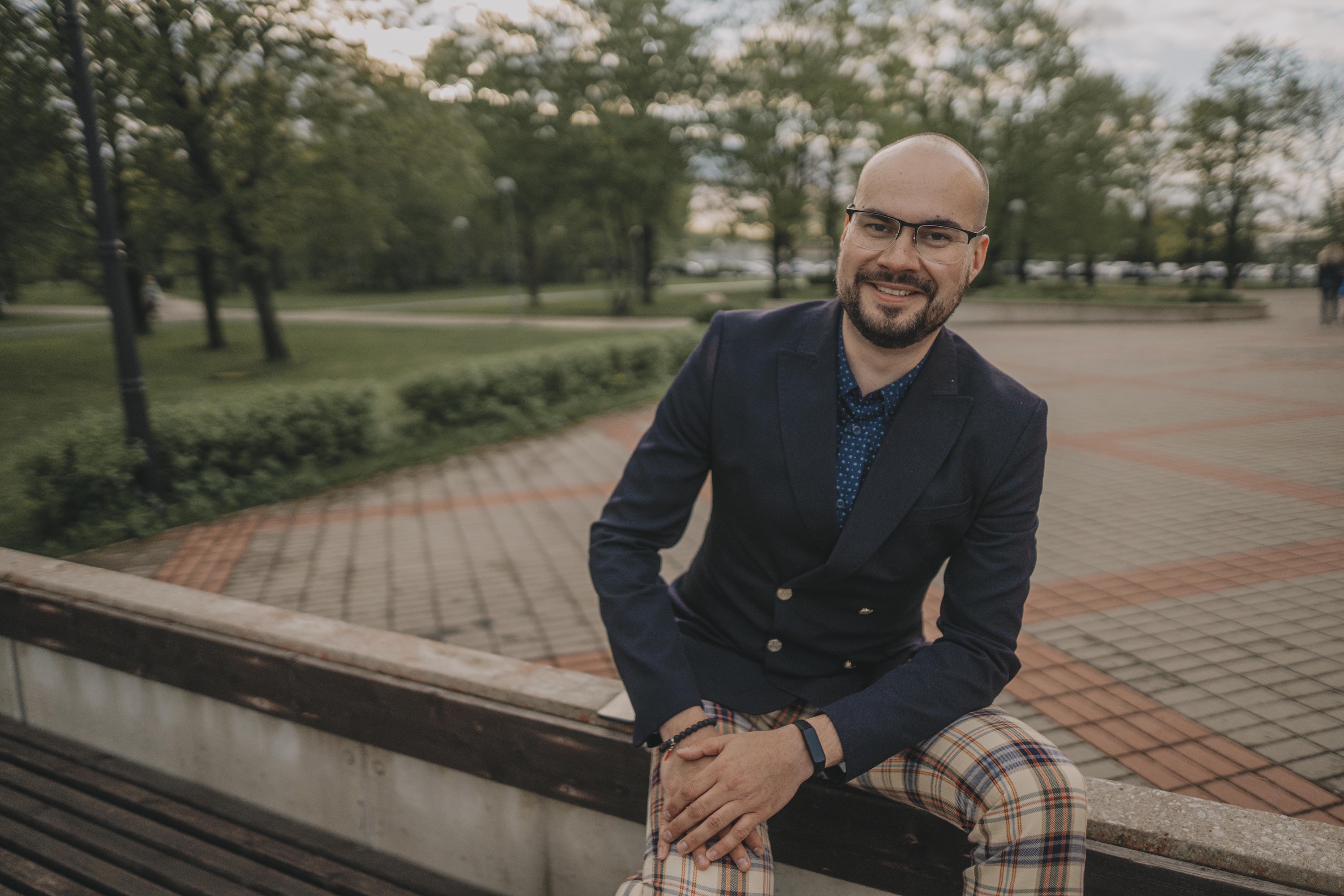
Photo: Artur Ivlijev
Everything depends on effective cooperation
Jevgeni’s most important partners are the Nordic embassies in Estonia, which provide assistance in the form of contacts and materials and help to arrange meetings and events. “I’m really pleased that a lot of organisations operating locally have become ongoing partners in our projects as well, like the City of Narva, the Central Library, Narva Museum, the Art Residency, the NGO Vitatiim and Vaba Lava,” Jevgeni says. “Larissa Shabunova and Jaanus Mikk, Finland and Sweden’s honorary consuls in Narva, have been a great help as well, and I can’t not mention the Narva studio of Radio 4 and the newspapers Narvskaja Gazeta and Viru Prospekt, which have all covered the projects and events our office has run.”
Over its years of operation, the Narva office of the NCM has forged strong relationships with many local residents and organisations. People in the city know that if an NCM event is taking place, it is bound to be interesting, important and very probably useful as well. Jevgeni adopts unorthodox approaches whenever possible to attract as wide-ranging an audience as possible in terms of age: everyone from school children to senior citizens.
Jevgeni also plans to organise events, discussions and masterclasses with more practical value, with attendees getting actively involved, since in his view this is the only way you can learn new things, try them out and change the way things are. The coronavirus pandemic forced him to look for new ways of reaching his target groups. One he found led to a project where more than 1000 children from Narva were able to watch Swedish cartoons in their own kindergartens rather than having to go to the cinema to do so.
Jevgeni says the fact that people and organisations have started launching their own projects and coming to him with their own ideas and proposals is a sign that the work the NCM is doing in Narva really does have value. “We’re always open to and willing to support interesting undertakings that have tangible benefits, or partner up for their implementation,” he says.
Working alone but as part of a team
The staff of the Estonian office of the NCM are spread around the country, with seven people in Tallinn and one each in Tartu and Narva. In the midst of the pandemic they started holding weekly meetings via Zoom, which meant that Jevgeni was in closer touch with his colleagues, all of whom were better informed about everyone else’s workflows and projects as a result.
“They come to Narva every now and then,” Jevgeni reveals, “but I tend to visit the office in Tallinn more often, to attend meetings or pick up event materials. When we’re on work outings together we make time to talk about our lives and our kids and the good things and the tougher stuff. It’s good for the team, for feeling like you’ve got each other’s backs. Our director, Christer, does a lot to keep team spirit up as well. He has loads of management experience, and we all feel like we’re valued and important and needed. He’s so upbeat and has a great sense of humour, so working under him is always a pleasure.”
Jevgeni has fingers in a lot of pies and always seems active and full of energy. That said, he realised recently that his favourite hobby is sleeping. He says this half in jest, of course, but adds that sleeping a little longer than normal is sometimes the best way of truly relaxing and recharging your batteries. He also enjoys swimming, cycling and walking, particular along the coast, to which he says Narva is blessed to be so close. He likes reading books about Nordic values such as hygge and lagom as well.
“On the whole I like doing anything that introduces a useful bit of something Scandinavian into my everyday routine,” he says. “I encourage everyone to get to know the Nordic countries better via their culture. Trust me: it will make your life brighter and more interesting one step at a time. If you don’t know where to start, try the books by Meik Wiking from the Happiness Research Institute in Denmark. Yep, you read right – such a place really exists! That’s how amazing the Nordic countries are.”

